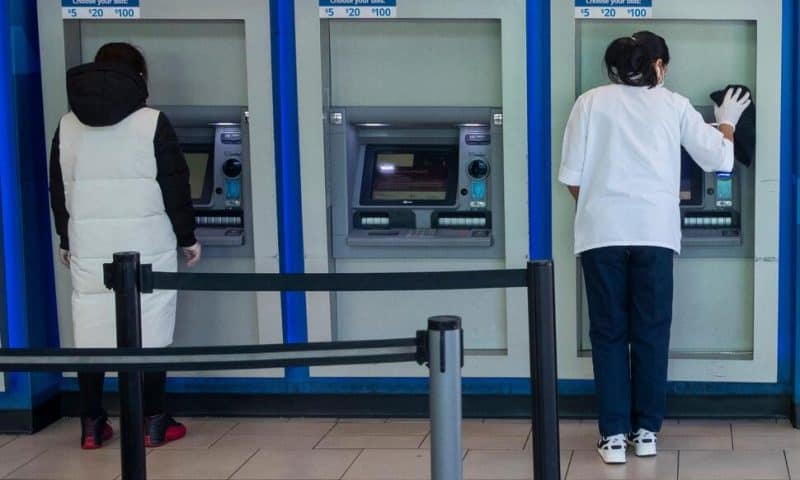Some banks and banking trade groups are suing the Consumer Financial Protection Bureau over a finalized rule that limits overdraft fees banks can charge
Some banks and banking trade groups are suing the Consumer Financial Protection Bureau over a finalized rule that limits overdraft fees banks can charge.
The rule is part of President Joe Biden administration’s campaign to reduce junk fees that hit consumers on everyday purchases, including banking services.
But banks argue that without overdraft protection, desperate consumers will instead lean on worse, unregulated services to ease their crunch.
Under the finalized rule from the Consumer Financial Protection Bureau that was announced on Thursday, banks will be able to choose from three options: they may charge a flat overdraft fee of $5, they may charge a fee that covers their costs and losses, or they may charge any fee so long as they disclose the terms of the overdraft loan the way they would for any other loan, typically expressed as an annual percentage rate, or APR.
While banks have cut back on overdraft fees in the past decade, the nation’s biggest banks still take in roughly $8 billion in the charges every year, according to data from the CFPB and bank public records. Currently, there is no cap on the overdraft fees that banks can legally charge.
The finalized rule is set to take effect in October 2025, but the incoming Trump administration has yet to tap anyone to lead the CFPB, and has mentioned the idea of eliminating the agency.
The finalized rule applies to banks and credit unions that have more than $10 billion in assets, which includes the nation’s largest banks. Banks have previously sued the CFPB over these rules and caps on credit card late fees. Congress also has the ability to challenge or overturn the rule.
The Consumer Bankers Association filed the lawsuit along with the American Bankers Association, America’s Credit Unions and Mississippi Bankers Association and other banks. The group claims that the CFPB is exceeding its regulatory authority with the new rule.
“Research shows that overdraft services provide much-needed liquidity during a short-term budget shortfall so consumers can put food on the table, keep the lights on, and make other important payments on time,” CBA President and CEO Lindsey Johnson said in a statement. “Without overdraft services, consumers on the margins are more likely to turn toward worse, less-regulated non-banking services to fill the gap.”
The complaint was filed Thursday in the U.S. District Court for the Southern District of Mississippi, Northern Division. CBA and its co-plaintiffs are also seeking a preliminary injunction barring the CFPB from implementing the new rule until the court makes a final decision on the merits of the case.

